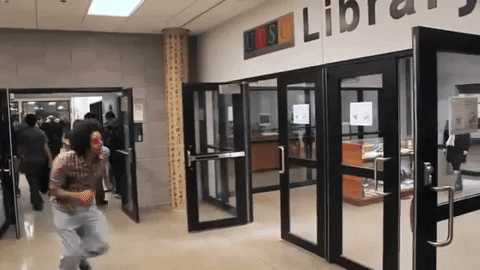Being broke sucks, big time. The upside, though, is that limited finances force you to be creative and figure out how to get by on next to nothing. The sooner you learn to cut costs (and corners), the better off you’ll be when you’re making major money in the future. If you’re living paycheck-to-paycheck (or even living without a paycheck), these 10 life hacks will help you survive until your windfall arrives. And, hey, remember that your worth is never determined by your bank account balance. (At least, that’s what we like to tell ourselves.)
Photo: Hero Images (Getty Images)
Mandatory money battles: Millennials vs. Gen Zers
Millennial retirement: How to Hack the Obsolete American Dream
Follow Mandatory on Facebook, Twitter, and Instagram.
Life Hacks No Money
-
Keep track of your money.

You may not have much, but if you want to keep what you have, you have to manage it. Use a budget app to see where you’re spending your money. (Your own wastefulness might surprise you.) Watch your bank account balance like a hawk. Find a free checking account if you're being charged fees at your current bank. Shut down anything that’s on auto-pay, like streaming services, to avoid unexpected withdrawals. Use cash as often as possible; it makes you more conscious of your spending. And stay away from credit cards. If you can't afford to pay for it in full right now, you can't afford it, period.
-
Get a slow cooker.

Slow-cooker soup or stew requires less than an hour of prep and will last you all week. Vegetables, a rotisserie chicken, and broth are all pretty cheap, so you’ll save money and it’ll be healthier for you than instant ramen. For easy, inexpensive recipes, check out any of Stephanie O'Dea's slow cooker cookbooks.
-
Drink water, and only water.

You are literally pissing away your money on beverages. Those daily coffees, sodas, and alcoholic drinks add up. Switching to tap water, and only tap water, will not only save you a ton of cash, it’ll keep you slim, help clear up your skin, regulate your energy, and help you sleep better. All. For. Free.
-
Use the library.

The library isn’t just for books. You can get free rentals of DVDs and CDs (if you still have old-school technology) as well as free e-books and audiobook downloads, plus free album and movie streaming services, too. Some libraries even offer complimentary camera equipment rental, meeting spaces, and museum or park passes. And, hello, they always have awesome free Wi-Fi.
-
Bargain hunt.

Scout garage sales in wealthy neighborhoods, grab free stuff left on the curb on garbage day, or troll thrift shops for bargains. Their trash is your treasure.
-
Create a clothing hierarchy.

Separate your wardrobe into “public” and “private” categories. Save the public clothes for job interviews, dates, and other important occasions. Take care of these clothes and, as soon as you get home, take them off and hang them up again. The private clothes are what you wear when you’re alone or making a quick run to the store; these you can wash less often and wear until they’re threadbare.
-
Join a gym.

A fitness club might seem beyond your means, but it doesn’t have to be. Planet Fitness is known for cheap memberships and some YMCAs offer income-based dues. Even if you’re not a workout nut, a gym membership really comes in handy if you don’t have a permanent address but need a place to shower.
-
Go to church.

Even if you’re not sold on the religion aspect, going to church has its benefits. Many churches offer free treats after Sunday mass as well as daily or weekly community meals; all you have to do is show up. While you’re there, ask about other services they can connect you with, like emergency financial assistance or free clothing and shoes. Good karma tip: if a church does help you out, a great way to say thanks is to volunteer at one of their events.
-
Stay insured.

If your parents are willing, piggyback on their health insurance policy for as long as possible. The Affordable Care Act is really only affordable in theory, and if you have to purchase your own policy, prepare to shell out hundreds of dollars a month (depending on the plan) for coverage. Once insured, save money by staying in-network or forego the punishing deductible system and pay out-of-pocket for care at low-cost or community clinics. Check out dental schools for reduced rates on cleanings and cavity fillings. End up in the emergency room or in need of major surgery? Ask about financial assistance; many major hospitals and clinics offer price reductions if you’re willing to produce a copy of your tax returns.
-
Negotiate.

Any bill is just a starting point for a negotiation. If you have the time, you might be able to get the balance reduced; it’ll just require keeping your calm and being insistent that there has to be a more affordable way to pay given your current (sniffle, sniffle) circumstances. Ask about income-based repayment plans, reduced rates for students (or the unemployed, if that’s the case), or any available rebates or special offers you might qualify for.






